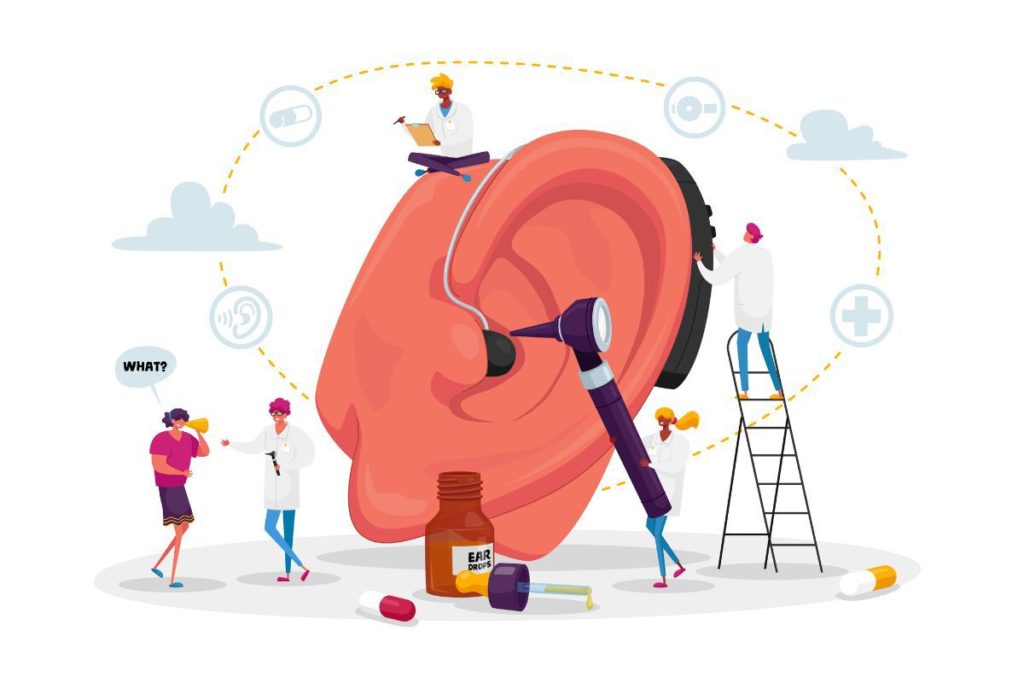You’ve worked hard to become a licensed audiologist in Texas. Unfortunately, a patient or a third party has filed a complaint against your license after successfully building a career. Even if the complaint is groundless, you still must proactively protect your license and career. Contact an audiologist license defense attorney to help you deal with the complaint and any ensuing disciplinary proceedings.
Complaints Against Audiologists
The Texas Department of Licensing & Regulation (TDLR) licenses and regulations audiologists, speech-language pathologists, and hearing instrument fitters and dispensers. TDLR also receives, investigates, and takes disciplinary action, if necessary, against these professionals based on allegations of violations of rules or laws that govern their profession.
TDLR initially reviews all complaints received and decides whether it has legal jurisdiction over the complaint and whether there is sufficient information to determine that a violation of a law or rule applicable to the profession has occurred. If TDLR finds that it has jurisdiction and a violation may have occurred, it opens a case for investigation. At that point, TDLR advises the licensee, referred to as the respondent, of the complaint, except in the case of investigations of certain types of complaints that must remain confidential for certain reasons. TDLR also assigns an investigator to the case.
Following the investigation, the prosecutor decides whether formal disciplinary action is warranted. If not called for due to insufficient evidence or other reasons, the prosecutor may close the case by issuing closing letters to all parties involved. The prosecutor also may issue a warning letter to the respondent recommending compliance with the rules and law.
Suppose the prosecutor determines that formal disciplinary action is warranted. In that case, the prosecutor issues a Notice of Alleged Violation (NOAV) to the respondent, seeking administrative penalties and possible sanctions against the respondent’s license.
Grounds for License Denial or Discipline
Under Tex. Occ. Code § 401.451, individuals can face a license denial, suspension or revocation of their licenses, or placement on probation for any of the following actions:
- Violates any order issued, rule, or law that governs the profession;
- Obtains a license through fraud, misrepresentation, or concealment of a material fact;
- Sells, barters, or offers to sell or barter a license or certificate of registration; or
- Engages in unprofessional conduct that:
- Endangers or is likely to endanger the health, welfare, or safety of the public as defined by the rules appliable to the profession; or
- Violates the code of ethics applicable to the profession.
Potential Penalties for Discipline Against Audiologists
Audiologists and speech-language pathologists can face administrative penalties, sanctions, or under 16 Tex. Admin. Code § 111.172. Prosecutors consider the following factors in determining the severity of the penalties and sanctions that audiologists may face for violations:
- The severity or seriousness of the violation;
- Whether the violation was willful or intentional;
- Whether the respondent acted in good faith to avoid or mitigate the violation or to correct the violation after it became apparent;
- Whether the respondent has engaged in similar violations in the past;
- The level of penalty or sanction necessary to deter future violations, both by the respondent and by the industry as a whole; and
- Any other matter that justice may require.
TDLR also categorizes potential penalties and sanctions against audiologists into Classes A, B, C, and D, based on the increasing severity of the violations.
Class A penalties range from $50 to $500 in fines. These penalties apply to minor administrative violations, such as failing to update your telephone number with TDLR and failing to notify TDLR of a change in the location of an internship for an audiology intern.
Class B penalties range from $300 to $3,000 in fines and/or disciplinary action up to one year of license suspension. Violations that may result in Class B penalties include certain records and billing violations, unlicensed activity, failure to identify interns and assistants, failure to supervise interns and assistants properly, and failure to complete continuing education.
Class C penalties include fines of $1,000 to $5,000 and/or disciplinary action up to license revocation. These penalties apply to:
- More serious records and billing violations;
- Practicing without a license;
- Unauthorized activity by speech-language pathology and audiology assistants;
- Standard of care violations;
- Telehealth violations;
- Violations related to fitting and dispensing hearing instruments;
- Failure to properly supervise assistants and interns; and
- Code of ethics violations.
Class D penalties may include fines of up to $5,000 and/or disciplinary action up to license revocation. These penalties apply to the most severe violations, which include:
- Failing to comply with a previous TDLR order;
- Obtaining or attempting to obtain a license by fraud, misrepresentation, or concealment of a material fact;
- Sold, bartered, or offered to sell or barter a license or certificate of registration;
- Engaged in unprofessional conduct that endangered the health, welfare, or safety of the public;
- Failed to pay TDLR for a dishonored payment or processing fee; or
- Engaged in sexual conduct, including intercourse, kissing, or fondling, with a client, assistant, intern, or student supervised by the licensee.
Get the Advice You Need About Your Audiologist License
When you face the potential loss of your career and ability to earn a living, you cannot take unwarranted risks. Handling such a challenging situation on your own can have disastrous results. The audiologist license defense lawyers at Bertolino, LLP, can look at the facts surrounding your situation and determine the best strategy to protect your license. Call us today at (512) 515-9518 or get more information about us online.
Call or text (512) 476-5757 or complete a Case Evaluation form



